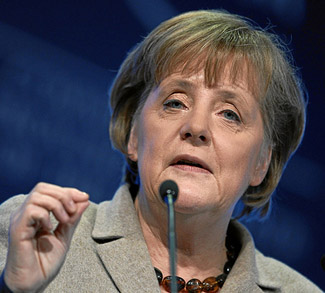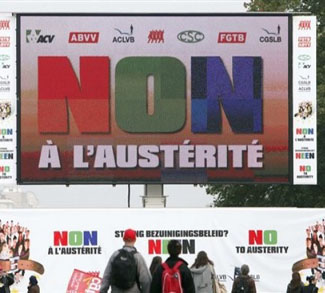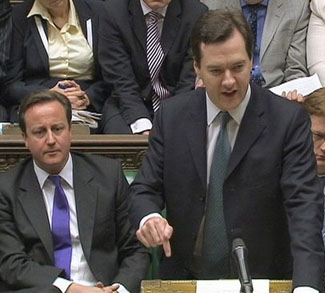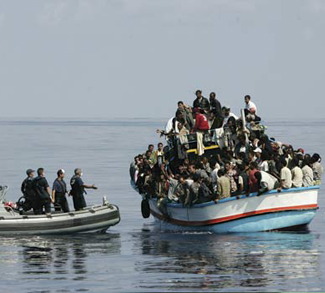When a news story has been dragging on for as long as the euro sovereign debt crisis, it’s easy for one to become desensitized to it and treat it like a looping highlight reel. But as tempting as it is to just go with the déjà vu and write off the constant stream of current events as unimportant, we shouldn’t give in to the urge. Why? Because in this case, the European Union is merely the sum of its democratic parts, and where there’s democracy there’s elections, so it doesn’t always matter what happens so much as when it happens; or rather, how near to this or that election. And when it comes to European elections, none cast a larger shadow than the German federal election slated for autumn of 2013.
Or to put it more succinct way: what happens between now and next year will influence the German election, and the results of the German election will decide the future of Europe.
Thus, the recent spike in mass demonstrations against austerity policies in Spain and Greece actually matters quite a bit. In the midst of a Greek general strike, 200,000 people marched through Athens on Wednesday and the demonstration eventually turned violent after police were attacked with firebombs. Spanish Prime Minister Mariano Rajoy is meeting with similar opposition in his own country as he quietly prepares the cuts that one would assume necessary for Spain to gain access to bailout funds. Demonstrations in Madrid turned violent on Tuesday after protestors attempted to form a human chain around the Spanish parliament. There are even rumblings that the independence movement in Catalonia may try to capitalize on current fiscal chaos and the looming threat of austerity, as evidenced by Catalonia president Artur Mas’s comments that a referendum should be held on Catalan independence.
The ongoing drama in Greece and Spain suggest that the war between stimulus and austerity is far from over. In fact, despite the positive macroeconomic signs of ECB head Mario Draghi green-lighting unlimited bond purchases and the German Supreme Court setting the stage for German participation in a Europe-wide bailout fund, the situation on the streets of various PIIGS countries gets worse and worse.
Many of these events are best viewed through the lens of how they will affect next year’s federal election in Germany. The results of this election will provide a mandate for the future of Europe, whether it is to forge ahead with ever greater integration or start the dismantling of one of the most ambitious political projects the world has ever seen.
If the election were held today, Angela Merkel’s Christian Democratic Union (CDU) would come away with an easy victory, but the lingering question is who the CDU would form a coalition with. Their current coalition partner, the business-friendly Free Democratic Party, has been progressively trounced in the polls since entering into the ruling coalition in 2009. Thus, the CDU may be compelled to enter into a “grand coalition” with the main opposition Social Democratic Party (SDP) in 2013. This would have the effect of pulling German euro policy towards the left, with the likely result being more debt subsidies for the PIIGS with less austerity strings attached.
That Chancellor Merkel finds herself in such a charmed position in the polls is largely due to the fact that she has maintained a relatively hard line towards underwriting euro debt with German money. And while this line seems to resonate with the German voting public, it can’t last forever, if only for the simple truth that the institutional framework holding up the euro needs to be fixed if it is to ever become a viable international currency. Doing so will require decisiveness and a firm German commitment one way or another; and given the fact that austerity is still decimating the Greek economy to the tune of a 6.5 percent annualized rate of contraction, this final decision in the future may not be congruent with the hard line on austerity that Merkel’s CDU plans on riding to electoral success in 2013.
Thus, it seems likely that a final decision on Europe will only come after German federal elections in 2013. Until then, the German government will try to keep the ship afloat with stopgap measures such bond-purchases by the ECB. Austerity may also become a word that is mentioned less and less as the German government becomes wary of creating widespread disillusionment towards the European project by flaunting a concept that, for reasons outlined above, may not prove fundamental in a future plan to rescue the euro. To this end, it’s interesting to note that it isn’t the German government that’s driving a hard bargain on Greek austerity cuts ahead of the next tranche of troika funds, but rather the IMF.
Now all that remains to be seen is whether Germany can hold it together until elections in 2013.




